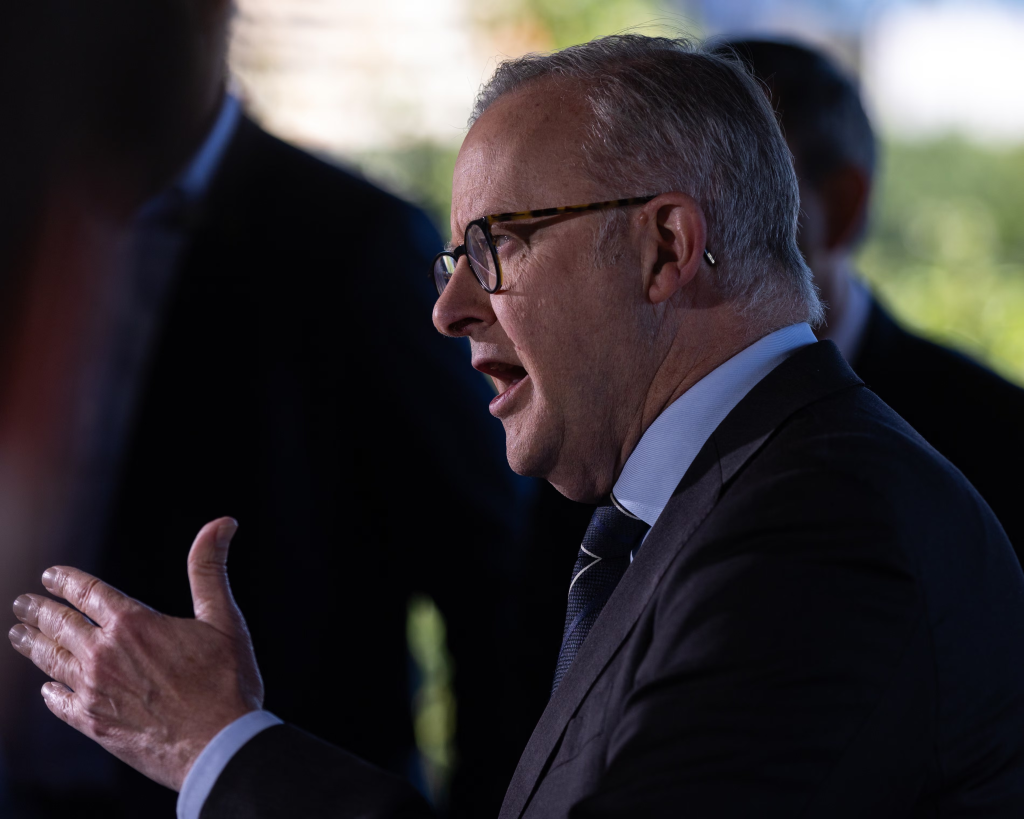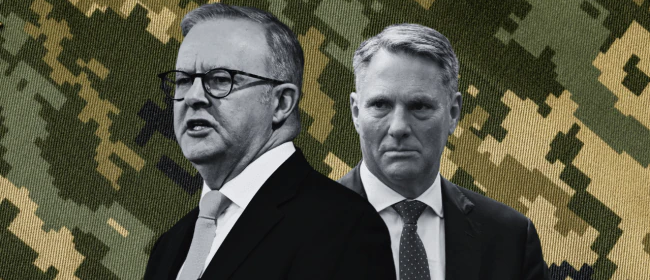In the midst of rising global tensions and fierce debate regarding Australia’s strategic position, Prime Minister Anthony Albanese’s recent comments on defence spending may seem, on the surface, uncontroversial. Facing pressure from the White House to increase Australia’s defence spending to 3.5% of GDP in line with NATO, Albanese instead reaffirmed a commitment to “decide what you need, your capability” to protect the nation, refusing to specify an exact figure. At face value, this response may appear to be a reasonable compromise, but the Labor government’s persistent reluctance to set a public standard for defence spending raises questions about whether Australia is doing enough to prepare for an increasingly intolerant world.
Reframing the Debate
Albanese’s ideological and rhetorical shift away from “spending targets” towards “capabilities” reframes the defence debate into one that is politically convenient. Rather than making a sustained, measurable commitment, the government is instead opting for a broader statement that leaves scope for flexibility, but also susceptibility to failure. While ambiguity has its role in political strategy, without an objective metric, it is becoming increasingly difficult for the public to ascertain whether Australia’s defence position has funding at the level demanded by current and potential threats.
This would be less concerning if Australia’s recent defence spending history was different. While the budget has increased on a nominal basis, much of its benefits lie beyond the foreseeable future. For example, the controversial AUKUS nuclear submarines deal cost the government $368 billion, yet its strategic benefits won’t materialise for at least decades. At the same time, there are glaring capability gaps today that Australia must meet in fields such as missile defence, cyber warfare and regional force projection, requirements which a clear commitment to increasing defence spending could fulfil.

The Diplomatic Cost of Silence
There is value in messaging. In a world where other medium powers, ranging from South Korea to Poland, are reinforcing their commitment to defence by increasing spending, Australia’s strategy has diminished our credibility and standing on the world stage. Our most important strategic ally, the United States, has historically based defence spending as a measure of GDP as a burden-sharing proxy, exemplified by President Donald Trump’s pressure on NATO to increase defence spending to 5% of GDP. Clearly, these measures carry weight among diplomatic circles. Australia benefits hugely from the security shield of the United States, and our failure to commit to a permanent increase in defence spending has left us out of joint with expectations, especiall if successive Washington administrations are even less forgiving of ambiguity.
Naturally, not all blame be placed on Albanese’s government alone. Australia’s defence politics has always been reactionary, propelled more by booms in procurement cycles than by steady bipartisan strategy. By removing a defence spending target altogether, Albanese minimises the political risk of appearing to underdeliver on his promises. However, in declining to set a clear metric, this government is forgoing the vital opportunity to enhance public understanding, improve regional deterrence and reaffirm our defence commitment to global partners.

Growing Gaps in Transparency
The Greens themselves are raising other questions – less about the size of the defence budget and more about transparency in the government’s defence policy. Their recent call for a revelation regarding whether Pine Gap base played a role in American strikes on Iran indicates another blind spot: the increasing gap between what is done under the auspices of national security and what is revealed to the public. To this end, the government’s reluctance to release a clear target for defence spending has added to a sense of obscurity and mistrust.
Ultimately, Albanese’s refusal to commit to a clear defence budget is politically convenient, but fundamentally indefensible from a strategic and diplomatic standpoint. “Capability” is a safe, politically correct response, but without stronger assurance of economic commitment, it risks leaving Australia discredited and vulnerable. In an increasingly uncertain world, the burden of proof lies on Albanese to explain why he will be able to accomplish “what you need” when push comes to shove. Albanese must not abuse the Australian public’s trust in the Labor Party, especially when threats are beginning to outpace our defence capabilities.
Read more: The Insight Corner



